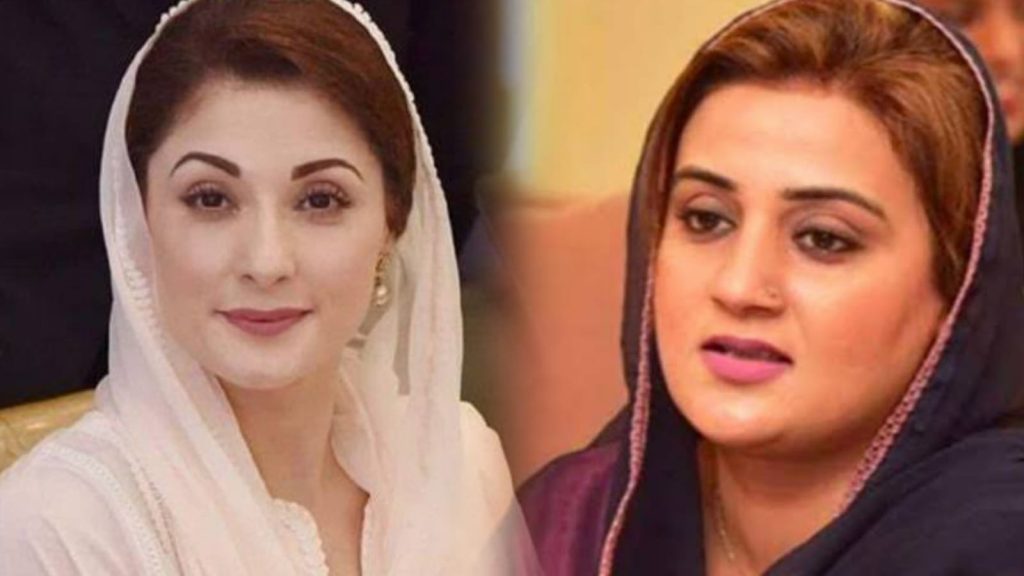Disclaimer*: The articles shared under 'Your Voice' section are sent to us by contributors and we neither confirm nor deny the authenticity of any facts stated below. Parhlo will not be liable for any false, inaccurate, inappropriate or incomplete information presented on the website. Read our disclaimer.
No movement or cause in the world is beyond reproach. This has and always has been a core belief of mine. As a feminist, I must concede that the movement, which works primarily to create the world where people can be equal regardless of gender, has its flaws.
An interesting article on Parhlo.com recently caught my attention. It’s been making the rounds on Pakistani Facebook, and a vigorous debate has ensued. The article, titled ’10 Important Questions Every Average Person Wants To Ask Pakistani Feminists’ is a fascinating read. The author takes the opportunity to ask Feminists 10 questions (actually, the article only asks 8— two missing questions were perhaps missed by an emotional writer) and demands answers.
As someone who identifies with the group, I would be happy to provide my answers. I must say that I cannot even hope to have the understanding of some of the other, much more knowledgeable, members of this community, but I shall try my best to give satisfactory answers.
Q1: Do you really understand the movement you’re die-hard supporters of?
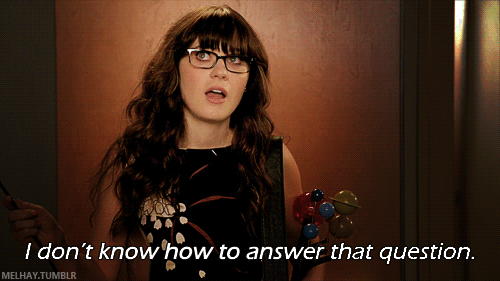


Source: Crazy Ladder
The question posed is fascinating to me, because of the implication that a group of women (as feminists are largely perceived to be) could not possibly have done the research and work that lead them towards feminism. As I can only speak from anecdotal data and experience, I can only assure the OP that women, at large, do their research before they decide on their political and/or social views, just as the rest of us do.
The outright accusation that most women are hit with whenever they try to argue for or against something is that they are uninformed. This may be the case at times, but the assumption in itself is largely misogynistic.
Q2: Don’t you think that you already have the rights you are demanding?
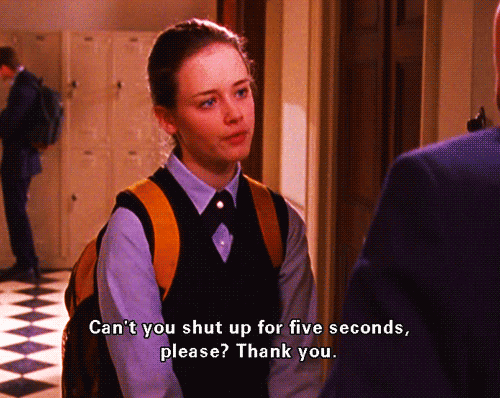


Source: Giphy
This is a question that comes up often when it comes to discussions on women’s rights in Pakistan. The answer is simple; no. I know the answer will not satisfy those who are skeptical, but the fact of the matter is that misogyny is rampant in our country. This is not an opinion.
Although on paper, many rights, such as the right to education, to work, to choose her own spouse, etc. are part of the law of the land, there is little to no implementation. Look around yourself; even as you live a life of privilege and ease compared to most Pakistanis, (you are educated, have access to some kind of device to read this on, an Internet connection, access to electricity, etc.) you will still find instances of bias around you.
One part of this discussion that is often ignored is how privileged some of us are. Call it ignorance, lack of awareness, or lack of empathy for people of different classes and social circles, the fact of the matter is that most times when you are citing instances of “equality” in the country, you are conveniently sweeping the experiences of the majority of Pakistanis under the rug. As a daughter of two educated and open minded individuals, I had access to education, healthcare, and the right to make decisions about my life.
However, not every woman in Pakistan is afforded the same responsibility. It is the time we start including their experience into our narrative. Even if I lived in a world where I was considered completely equal to a man, the experience of the women in circumstances where their voices are not heard aren’t just valuable, they are essential. These women are in the majority. We are but, a small, privileged minority, and cannot hope to represent their experiences.
Q3: Where are the ‘strong and independent women’?
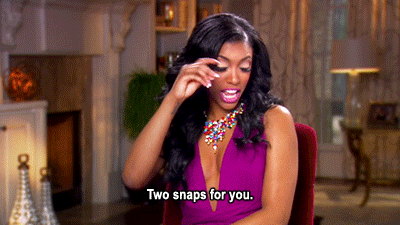


Source: www.goodreads.com
The idea that the author is posting here is a dangerous one — because women cannot fight against societal norms, they are fundamentally weak. This is a classic case of victim blaming. Because women are forced to abide by certain rules in the patriarchy, they must be at fault as they say and do nothing.
The answer to this is simple. Firstly, women do fight against the society. When a girl from your family goes to university for the first time in the history of the family, she is fighting. When a woman manages to find a coveted job despite the objections of her in-laws, she is fighting. Every little thing they do, every small struggle they undertake, is an act of strength in the face of a system that is slated against them.
Secondly, even if women were not to fight, and to let society do with them what it wills, how does that place the women at fault? If a woman is forced to marry a man against her will, she may not be able to push against the emotional blackmail and societal pressure, but does that make the parents who are denying her a choice any less guilty?
Q4: What are you doing to prove that women are as capable as men?
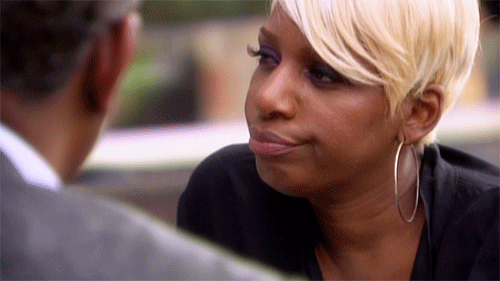


Source: Tumblr
This is gonna be a short one, repeat after me: Women Do Not Need To Prove They Are As Capable As Men To Deserve Equal Rights. Thank you.
(but just in case you’re confused, women work and excel in every field in the world and the only thing that holds them back from their male counterparts is a system that considers a women’s work less valuable than a man’s)
Q5: Do you really think the patriarchy is the problem?
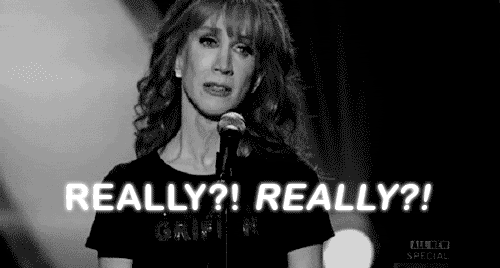


Source: Giphy
The patriarchy isn’t exactly what people make it out to be. It’s not a couple of evil guys heading every institution in the world who hate women and won’t let them do anything. The patriarchy is something like… an invisible force. A social construct which increases in intensity based on small, everyday things. These everyday things lead to the formation of beliefs and dogmas, which can seriously harm and hurt women.
The patriarchy is indeed a huge problem for women everywhere. For me, the patriarchy might mean that I won’t get the same pay as my male colleague because of the perception that he is doing more. For another woman in Pakistan, it might result in her not being provided with basic rights like education and healthcare. For someone else, it might mean they may not get justice after assault or rape. The patriarchy has a serious impact on the quality of life that women in this country will live, and it is part of the problem.
Q6: Why is there such hypocrisy in your movement?



Source: Active Minds Blog
To elaborate, the author talked about how women are responsible for misogyny because they do not teach their children any different. I have to say, this is an interesting point, especially the way it is phrased in the original article. Let me explain a couple of things.
Yes, women who perpetuate misogyny in their households by differentiating between men and women are part of the problem. The assumption, in this case, is that feminists only see misogyny as something that can only be perpetuated by men, and this is not the case. However, the idea that women like this are the sole suspect in the determination of how sexism prevails is largely simplistic. Many, many factors that men and women face throughout their lives, their birth, their childhood, school life, interactions with others, and much more, contribute to their outlook on life.
The idea that men who were raised by misogynistic mothers are helpless and have nowhere to go but to further perpetuate its effects is extremely unnerving. Men, grown men, as women, have the ability to mature and think for themselves. This is why many men identify as feminists too.
Q7: Why don’t you start a movement for Islamic rule?



Source: Giphy
There are a couple of things to say about this part of the article. Firstly, it’s interesting how the author seamlessly moves from ‘Pakistani Feminists’ to ‘Muslim Feminists’ as though the two are synonymous. Not only do many Pakistanis identify with other religions or none at all, many of those who do identify with Islam have their own understandings of the idea of the Islamic Rule. Over-generalizations cannot work here.
The idea of ditching the feminist movement and applying an Islamic movement is not a new idea, and while it may have its merits and drawbacks, I counter this question with another; Why not feminism on its own?
Not only would a religion-based movement single out only Muslims, it would also be largely redundant. If you believe that Islam stands for everything that feminism stands for, a) why do you fight against feminism when you believe in Islam, and b) why go through the trouble of starting a new movement when one with everything you are asking for already exist?
Q8: When do you think the need for feminism will be over?



Source: Giphy
This is actually a fascinating question, which different people can answer in different ways. Some may define it as a society where people have equal opportunities regardless of gender, others as when people of all genders have rights, interwoven with race, religion, and culture. It is up to you to decide on what the answer to that question will be.
By the time I have finished reading that article, I can tell that the author clearly has disdain for feminism, if not for what it stands for, then perhaps for its name. Feminism as a whole has may complex problems, such as the exclusion of women from different socioeconomic backgrounds and ethnic groups. These issues can only be worked on when women are given the chance to explore feminism, to read, discuss, and offer their valuable explanations. Before offering criticism, it is important to be informed on at least the basics so your argument can have some standing.
It is also important to remember that feminism isn’t a cult or a religion. Not every feminist believes in feminism in the same way and that’s okay. That’s why over-generalizations get you nowhere when it comes to defining one type or one opinion of feminists and feminism in general.















